
Cape Town is called South Africa’s Mother City, a must-see destination for all travelers to the country. It represents what is happening in the country now and is also where it all began as an outpost of the Dutch East India company.
It was ground zero for much of the tragedies surrounding the decades of Apartheid but is also where visitors can learn about Nelson Mandela’s imprisonment and modern South African politics. It’s a place where there’s always a party going on, whether you’re toasting rooftop cocktails in Camps Bay or slinging back beers in trendy Woodstock. There’s something for everybody.
This post contains affiliate links that can earn this website a small income. They will not cost you anything to use.

The Neighborhoods of Cape Town
Cape Town is organized into dozens of neighborhoods that feel like miniature versions of the city. The Central Business District is where many travelers base themselves as this is where attractions like Greenmarket Square and the Company Gardens.
Loop Street and Bree Street both have a number of great restaurants, coffee shops, and stores as well as art walks. Gardens, to the south, is similarly centered around Kloof Street. Neighboring Bo Kaap is easily the most colorful neighborhood in Cape Town but doesn’t offer much in the way of accommodations.
Green Point is set along the water and Green Point Park with plenty of eateries and accommodations. It’s also close to De Waterkant, also known as the V&A Waterfront. This is where Robben Island ferries and sailing charters leave from.
Camps Bay is one of Cape Town’s wealthiest neighborhoods but also has some of the best views of the peninsula. Fine dining restaurants line the beach along with luxury hotels.
Woodstock is on the opposite end of the spectrum, a gritty neighborhood akin to Bushwick full of street art and galleries. It’s best known as the home to the Old Biscuit Mill and its weekly Neighborgoods market.
Muizenberg is located on the beach on the way to the Cape Peninsula. It’s known for its surf shops and colorful bathing boxes but also has budget accommodations, beach rentals, and seafood restaurants. It’s a nice place to base yourself to get away from the city chaos.

Cape Town Restaurants and Cafes
Cape Town is a culinary city with many different cuisines and influences. Dining out is a part of the experience, so ask locals where they recommend. Everyone has a suggestion!
Food halls- A number of food halls popping up so you can have a little bit of everything. V&A Food Market has sushi, sandwiches, coffee, Indian, and pizza. Mojo Market in Sea Point features stalls with Thai, mac and cheese, hummus, and Mexican.
Truth Coffee Roasting– Considered to be some of the world’s best coffee, this roaster has a location in District Six with steampunk design. The cafe serves breakfast, burgers, and salads.
El Burro– Finding Mexican food abroad can be tough, but this Green Point restaurant is surprisingly authentic. They have fish tacos, delicious guacamole, and tasty margaritas.
Masala Dosa- I enjoyed authentic Indian fare at this bright colored Bollywood-inspired restaurant on Long Street. The delicious chicken is paired with chutneys and a large dosa but there are also vegan options.
Eastern Bazaar– Choose from pizza, Turkish, Chinese, and Indian dishes at this food court. It’s a great vegetarian-friendly option and is super affordable, with most meals around $4 USD.
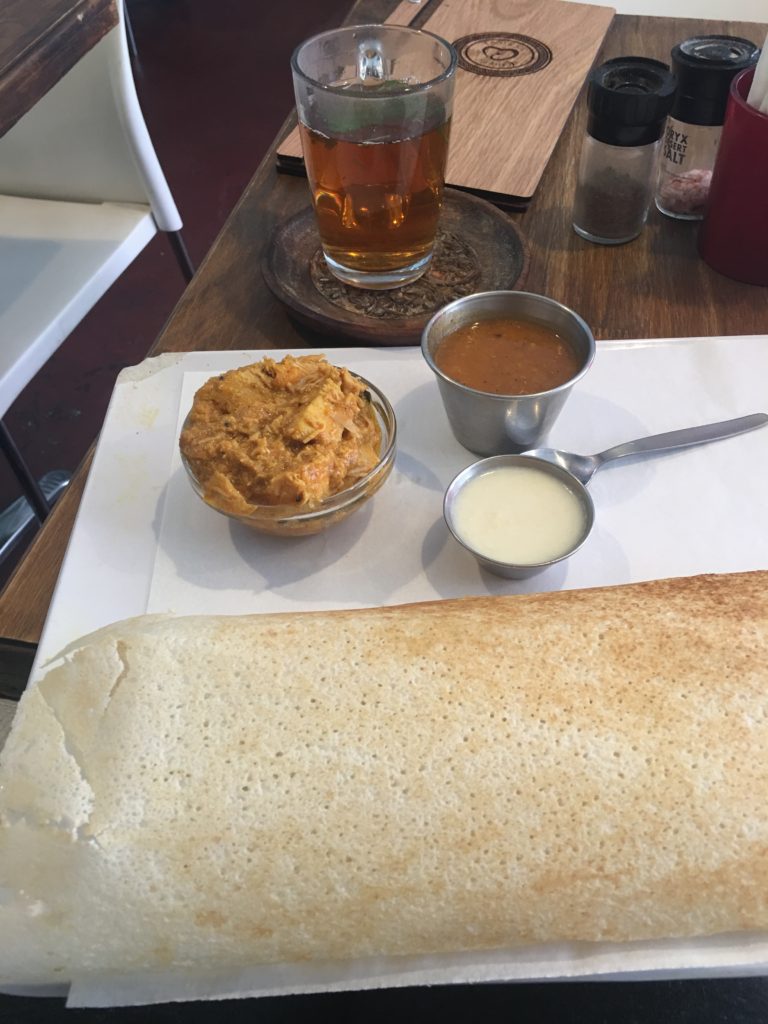
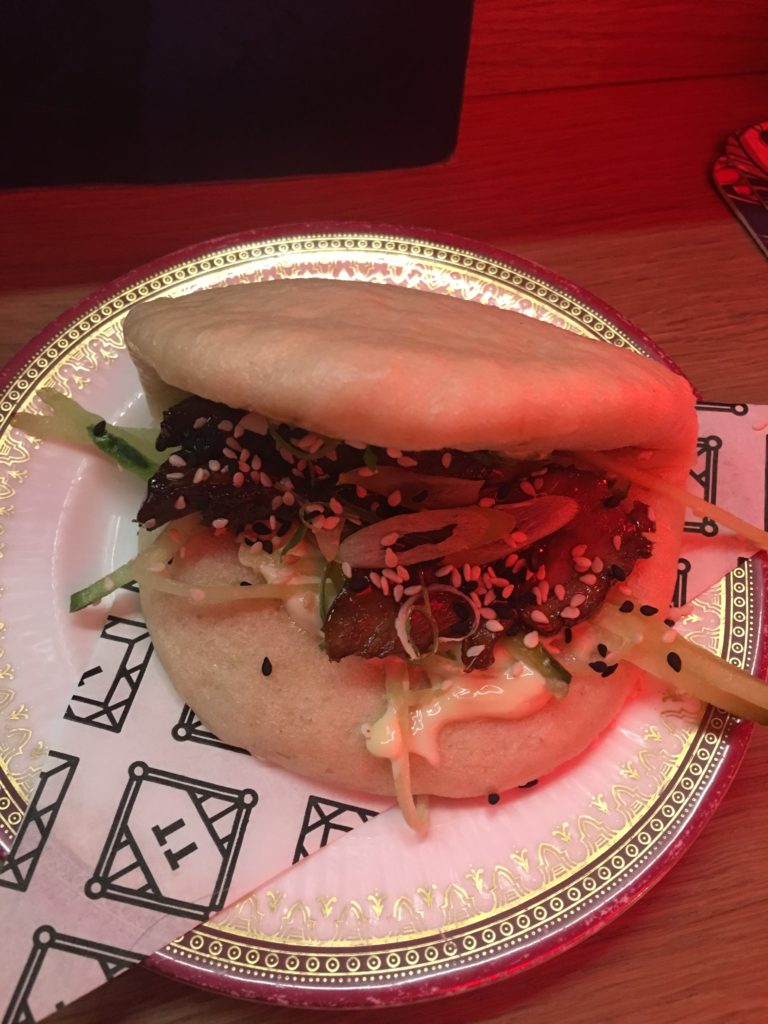
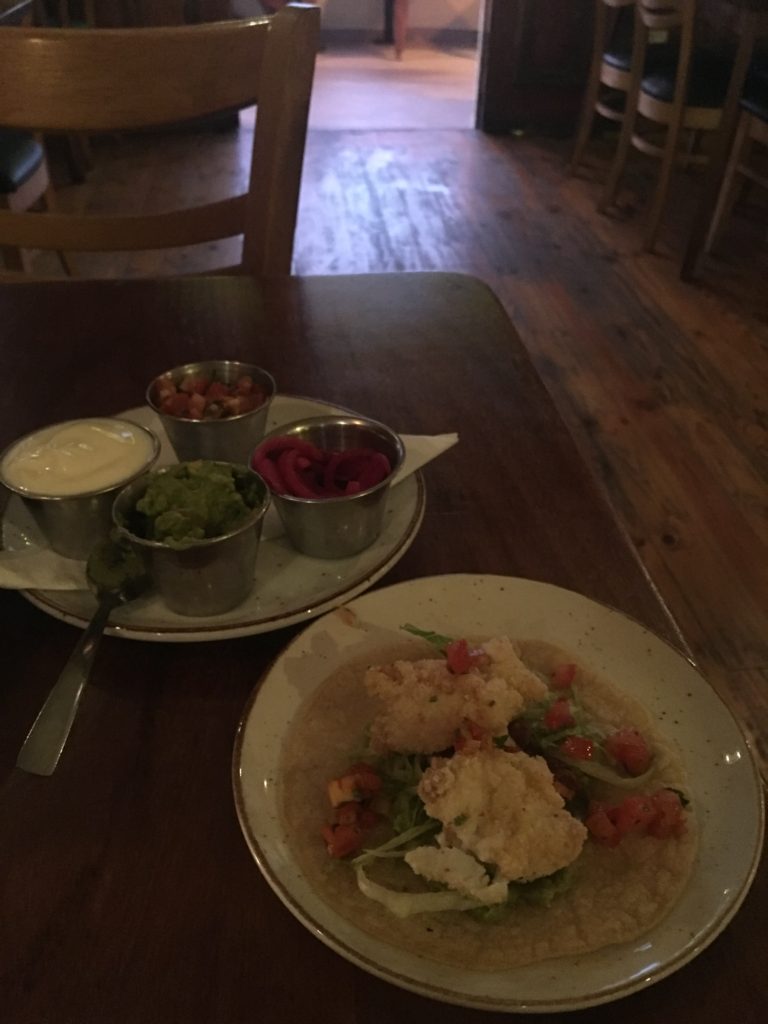
Tjing Tjing– Set in a 200-year-old house, this Japanese restaurant has multiple dining options including a rooftop bar. Playful menu items include pork buns, dumplings, ramen, and sandwiches.
The Test Kitchen- Located at the Old Biscuit Mill, this restaurant has dark and light rooms for only 40 diners per night. The chef’s menu takes inspiration from around the world.
Reverie Social Table– This 18-seat restaurant in Observatory is run by Chef Julia Hattingh. The menu features five courses with wine pairings and focuses on local ingredients.
Kalky’s– This humble seaside restaurant is cash only and offers fresh seafood. Their fish and chips are a popular choice, but the peri peri prawns are also worth a try.
Kloof Street House– Locals love this restaurant for its weekly events like Sunday jazz brunch, but also enjoy the brasserie-style menu. Set in a Victorian home, highlights include steaks, salads, and seafood.

Cape Town Bars and Nightlife
This fun loving city has all sorts of watering holes from old-school dives to craft breweries to swanky cocktail bars. It’s also a gin-loving city, so be sure to order a gin and tonic at least once!
House of Machines– During the morning, this bike-friendly shop is a coffee shop but turns into a cocktail bar in the afternoon. They have craft cocktails and beer as well as live music.
The Botanical Bar- While they have a food menu, people really come here for the cocktails, specifically the gin. They make their own bitters and shrubs weekly.

Up Yours- Located on the rooftop of Yours Truly, it’s a great place for sundowners with DJs and live music. It’s full of plants, which adds to the ambiance.
The Gin Bar– This cozy speakeasy at Honest Chocolate crafts unique cocktails using South African gin and other ingredients. Each drink is intended to help with one of your ailments.
Openwine- If you don’t make it to Stellenbosch, this wine shop and tasting room is a great place to sample South African wines. The kitchen serves wood-fired pizzas and other Italian dishes.
Devil’s Peak Brewery– This craft brewery crafts lagers, pale ales, and IPAs at their two taprooms in Epping and Salt River. They also have full service restaurants that host weekly events.

Things to Do in Cape Town
Most travelers come to Cape Town for its incredible cultural and historic offerings. Give yourself plenty of time to explore as many of the attractions will take up much of the day. Weather is also fickle, especially on Table Mountain, so have a backup plan.
Table Mountain– There are two ways to see Cape Town’s most iconic feature: by hiking the two hours straight up the mountain or by taking the cable car. The views from the top are incredible. Guided hikes are recommended. BazBus has one offered.
Lions Head- Another popular hike is this second rock feature. It reaches 669 meters and is an option for those looking for unobstructed views of the city. It’s also beautiful for sunrise and sunset, but guided hikes are recommended.
Robben Island– Visitors can’t miss a trip to the island prison that held Nelson Mandela and other political opponents of Apartheid. It’s only accessible by ferry and tours are led by former prisoners.
Boulders Beach– The penguin colony is a fascinating place for those interested in the African penguin. Ticket price includes entry into two viewing areas.
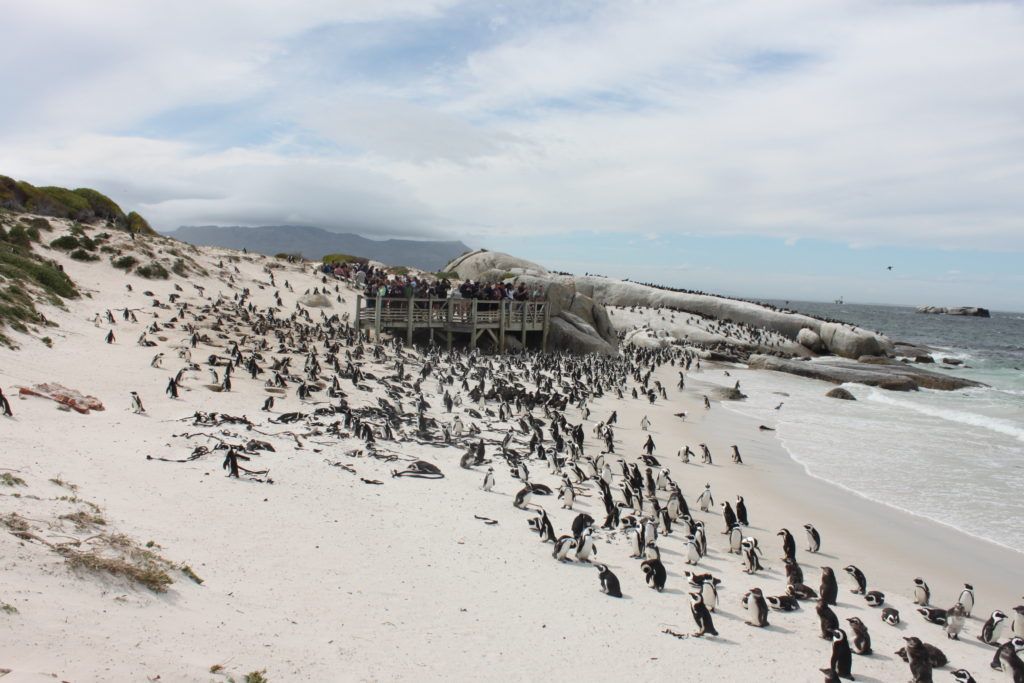
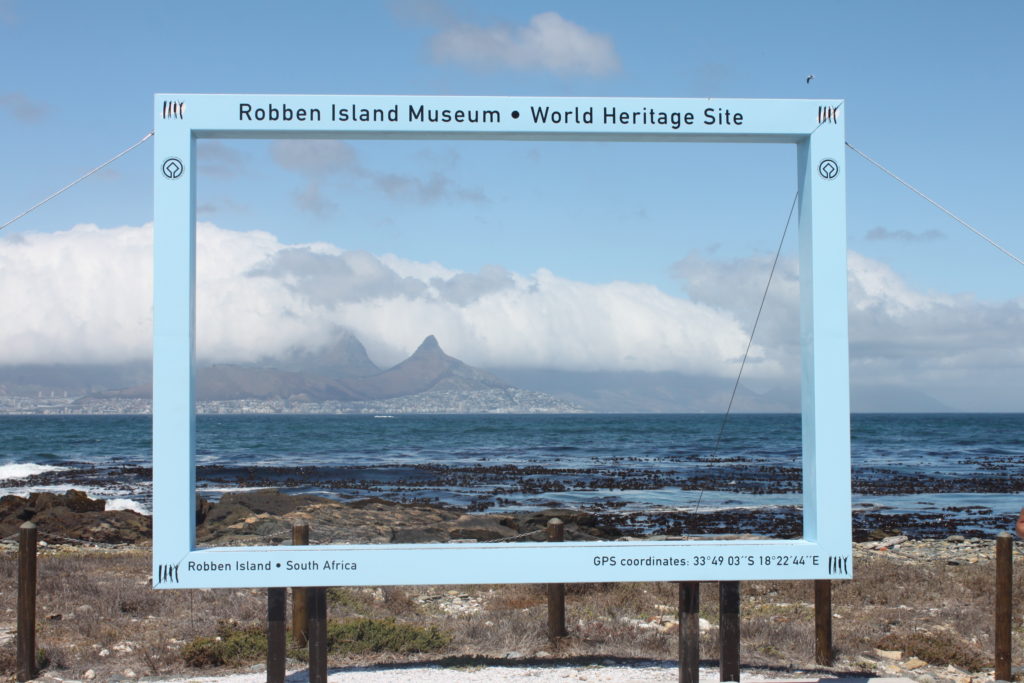
Zeitz Museum of Contemporary Art Africa– Also at the V&A Waterfront, this art museum focuses on what’s happening in the art scene in both Africa and the African diaspora. Exhibits are spread across 100 galleries in the modern building.
District Six Museum– This museum interprets the history of one Cape Town neighborhood before and after Apartheid. It first opened in 1994 and pairs well with a visit to Robben Island.
Kirstenbosch Botanical Gardens– The city’s beautiful botanical gardens have summer concerts and a Tree Canopy Walkway. Set against Table Mountain, it’s the perfect escape from the city noise.
Tours- The free walking tour of Cape Town is a great way to learn an introductory history of the city. Kiff Kombi offers fun tours on different elements of Cape Town Culture, including its craft beer and gin scenes. AWOL Tours offers bicycle tours of the city. The City Sightseeing Cape Town Hop-On Hop-Off Tour is another good way to see the highlights if you’re short on time.

Shopping in Cape Town
Browse one of Cape Town’s unique shops, selling everything from vintage clothing to records to artwork and everything in between. Don’t miss the many maker’s markets that take place all over town.
Oranjezicht City Farm Market– While mostly a weekly food market selling produce and prepared foods, this market has locally made clothing, flowers, and jewelry.
The Watershed– There are over 150 shops and vendors in this former warehouse at the V&A Waterfront. There are ceramics, textiles, jewelry, and other crafts.
African Trading Port– If you’re looking for one shop to buy everything, this one near the harbor is a good place to go. Here you can find woodwork, jewelry, African tea, and other products.
Old Biscuit Mill– The former warehouse in Woodstock now sells artwork, ceramics, home decor, clothing, and crafts both at their weekly markets and throughout the week.
Greenmarket Square is a great spot to pick up last minute souvenirs and is one of the places you can actually haggle. But be prepared to pay a fair price. Most days it’s over by mid afternoon, so go around 10 am to find carved wooden bowls, fabrics, and jewelry.

Where to Stay in Cape Town
There is no shortage of accommodations around the neighborhoods of Cape Town, whether you’re looking for a budget-friendly hostel or to splurge on a boutique hotel. Look for centrally located properties.
91 Loop– This trendy hostel is not far from Bo-Kaap and Long Street with pod-style dorm rooms as well as traditional rooms, a restaurant and bar, and daily activities.
The Backpack– The award-winning hostel focuses on social change with its green initiatives, fair trade conditions, and community projects. They also have dorms and private rooms, tours, and free daily breakfast.
Never@Home– Another hip hostel, this Green Point hostel is near all the neighborhood’s restaurants. They have free breakfast, a swimming pool, a kitchen, and both dorm and private rooms.
Once in Cape Town– This luxury hostel has multiple types of rooms, free breakfast, a communal kitchen, and free daily activities. Yours Truly and Up Yours are located on the property as well.
Atlantic Point Backpackers– Located in Green Point, this friendly hostel has daily breakfast, a full kitchen, lockers, dorm and private rooms, a pool, and lots of communal hang out areas.
Gorgeous George– A boutique hotel near Greenmarket Square, George is impeccably designed and set between two heritage buildings. It has a rooftop pool and restaurant along with 32 stylish rooms.
The Grand Daddy Hotel– Instagrammers will love this boutique hotel with Airstream rooms on the roof. The building, which has operated as a hotel for 120 years, also has a restaurant and standard hotel rooms.
15 on Orange Hotel– The Autograph Collection hotel is an urban oasis in the Gardens neighborhood with over 95 plants. There’s a restaurant and pool along with modern rooms.
Airbnb– If you’re traveling with a larger group or want to experience the comforts of home, rent a property in one of Cape Town’s funky neighborhoods.

Transportation in Cape Town
Most parts of Cape Town are walkable in terms of distance but ask around about the safety before you go. I didn’t feel unsafe most of the time when walking from my hostel to the market and back from the art walk but certainly, keep your wits about you. Bike rentals are also available from shops like Cape Town Cycle Hire, but keep in mind that it’s a hilly city.
If you’re renting a car to see other parts of South Africa, you might want to wait until you’re ready to leave. Cape Town and South Africa overall have a system of parking attendants that must be paid by drivers which is something travelers have to adjust to.
Cape Town has a public transportation system that includes buses and trains. My Citi and Golden Arrow are the city’s bus lines. My Citi extensively covers the city and operates a free bus that goes between Kloof Nek and the Table Mountain cableway entrance.
Metrorail operates throughout the city and is how I got to Simons Town. It’s very cheap to take, but can be unreliable. I recommend giving yourself plenty of time to get to your destination and not taking the train after dark.
Cape Town’s central station has routes to neighborhoods as far as Stellenbosch. This station is also where long-distance trains like the Blue Train enter and exit the city. Long distance buses like Intercape also stop here. BazBus drops off at hostels within the city so you don’t need to get to the station.
Like in most major cities, there are taxis, but I recommend asking your hotel or hostel to call one for you. There are also minibus taxis, but I didn’t take any. Instead, I took Uber nearly everywhere. This guide by If I Could is helpful for navigating the city’s transportation methods.
When going to the Cape Town airport, you can either take a taxi or rideshare or book a shuttle. There’s also a My Citi bus that runs into the city center.

Leave a Reply